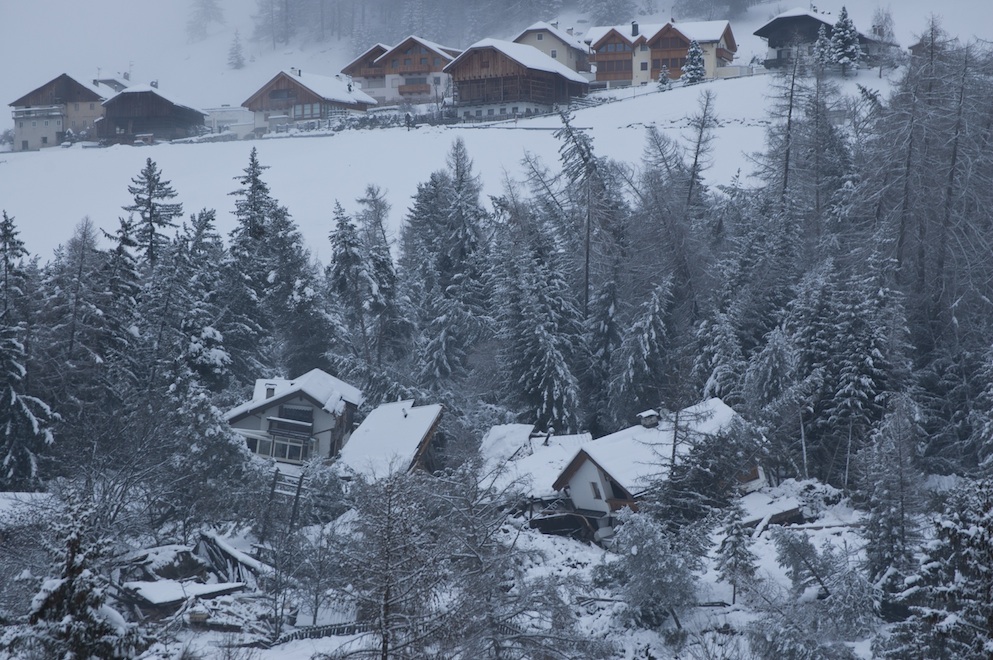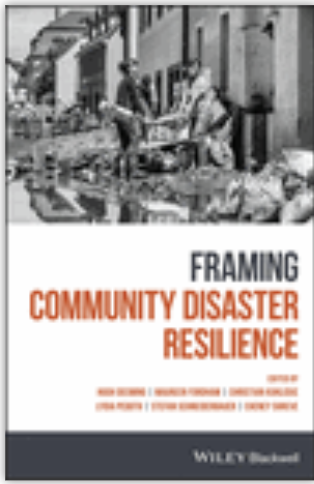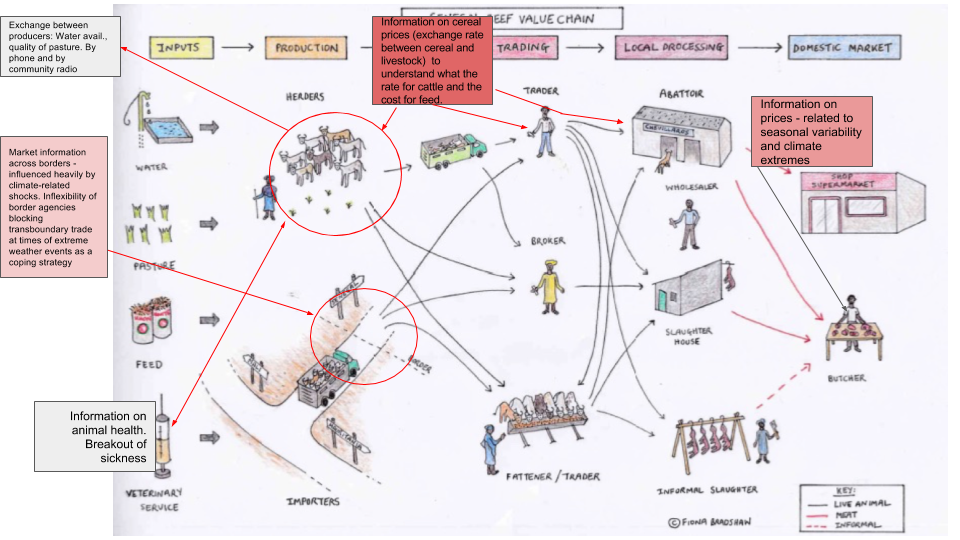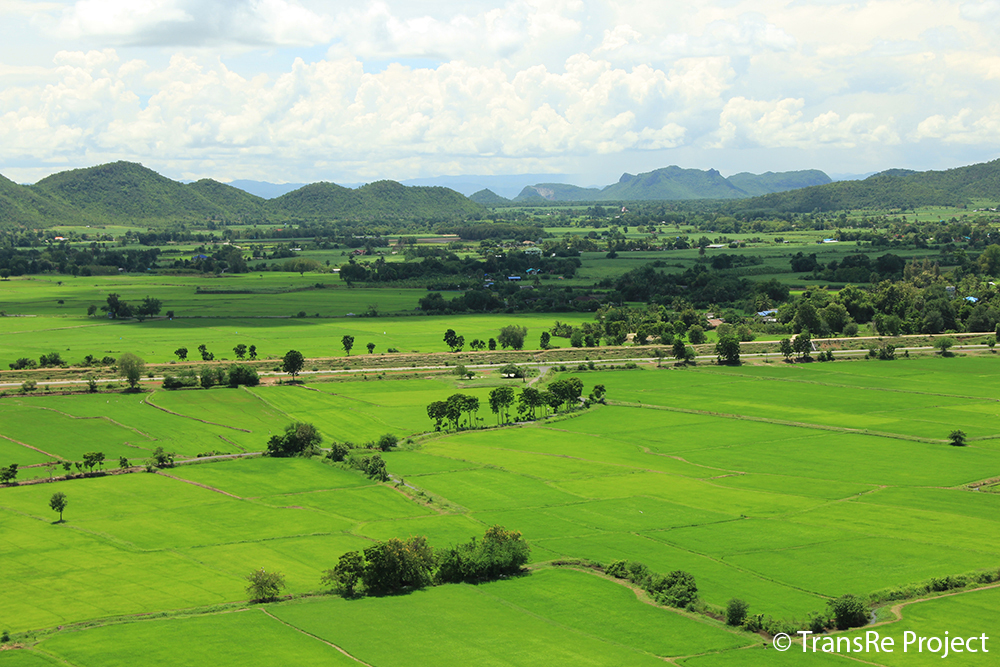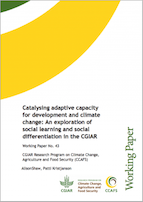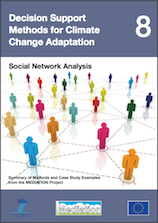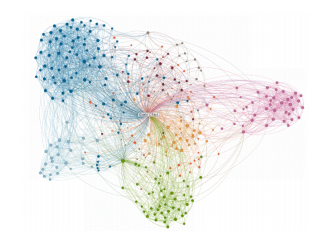social networks
The Role of Risk Perception and Community Networks in Preparing for and Responding to Landslides
This article looks at the role that perception, local knowledge, and social networks play in community resilience in the alpine community of Badia, which experienced a large landslide in 2012.
Managing Complex Systems: The Need to Structure Qualitative Data
This paper shows how 'structured output' methods can ‘abstract’ important issues and concepts and feed into planning and policy outputs.
Module: Knowledge Systems Analysis for Climate Knowledge Brokers
This module offers an introduction to a methodology developed by CKB to allow for more focused knowledge brokering interventions in knowledge systems connected to climate-sensitive value chains.
TransRe – Building resilience through translocality. Climate change, migration and social resilience of rural communities in Thailand
The TransRe project seeks to decipher the relations between migration, translocality and social resilience to climate change based on case studies carried out in Thailand and migration destinations.
Social Network Analysis
This article, which is part of a series of MEDIATION outputs, provides a review of Social Network Analysis and associated tools for supporting adaptation decision-making.
Socio-institutional network mapping in the Guadiana basin
Analysis of Spanish water institutions
Social network analysis
Module: Socio-institutional network analysis
